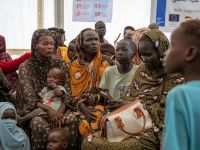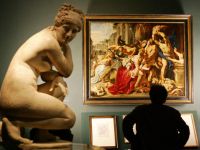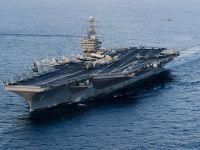General Data
Population 4.00 million (1999)
Religions Muslim, Christian
Government Democratic Parliamentary Republic
Languages Arabic; (French, English and Armenian are widely spoken)
Work Week
Government:
Monday-Friday
8:00 - 14:00
Saturday
8:00 - 13:00
Banking:
Monday-Friday
8:00 - 12:30
Saturday
8:00-12:00
Monetary Unit Lebanese Pound (L£)
Exchange Rate L£ 1,507=US$ 1
Current Political Climate
A large post-civil war political shake up stunned Lebanon when Prime Minister Hariri chose to resign in 1998, following a power struggle with the new President and former army Chief of Staff, Emile Lahoud.
Hariri is accredited with having steered his country out of the Civil War and into better economic times. His main influence was rebuilding the infrastructure, something he accomplished while accruing an enormous debt in the process.
While his resignation did usher in a period of uncertainty, the transition to the new Prime Minister, Selim al-Hoss, seems to have progressed smoothly. Hoss, who possesses a doctorate in economics and served as Prime Minister during the Civil War, is trying to steer the economy away from the public to the private sector.
But many wildcards still exist in Lebanese politics. Syria, the main power broker in the country, controls Lebanon's political system. Syria's reach became clear when the former army's chief of staff, Lt.-Gen. Emile Lahoud, met with Syrian officials in November 1998 to ensure his election as the country's president. Without Syria’s approval, Lahoud’s chances would have been negligible.
Besides Syria's role in the election, it has made inroads into other areas. There are currently 35,000 Syrian troops stationed in Lebanon. High-ranking officers have created economic empires in certain parts of the country, where they have come to control trade in the area. Furthermore, more than 700,000 Syrian workers work in Lebanon and take at least $2 billion out of the country each year.
The structure of Lebanon's political system has in the past and continues to create predicaments. The government's structure is based on a complicated compromise by the three main religious factions: the Maronite Christians, the Sunni Muslims and the Shi’ite Muslims. According to the arrangement agreed upon in 1943, the leaders of these factions assume the roles of President, Prime Minister and Speaker of the Parliament respectively. The three political figures are also known as the “Troika”. Tension and rifts generally characterize the relationship among the Troika. At present, Lahoud is the Maronite President, Hoss, the Sunni Prime Minister and Nabi Berri the Shi’ite Speaker of the Parliament.
On Lebanon’s southern border, the threat of confrontation with Israel continues to create a tense atmosphere. While most clashes between Lebanese and Israelis occur inside the security zone, they have spilled deeper into the country at times. In June 1999, Israel launched its most serious attack since 1996. At least seven were killed, and 50 wounded. The attack also targeted Beirut's rebuilt infrastructure.
Israel's new Prime Minister Ehud Barak has promised to withdraw the Israel Defense Forces from Lebanon by July 2000. The sudden resumption in Israeli-Syrian peace talks in December 1999 raised new hopes for Lebanon as well. Any comprehensive peace agreement will inevitably include as Israeli withdrawal from Southern Lebanon. Initially, Lebanese officials expressed outrage over the perceived Syrian neglect of their interests in negotiations with Israel. Lebanon has since appointed Interior Minister Michel Murr as the head of his country's negotiation team, and is expected to participate in future talks. Despite the prominence of the Lebanon factor in any comprehensive solution, the Lebanese government is certain to remain Syria's subordinate throughout the negotiations.
© 2000 Mena Report (www.menareport.com)







